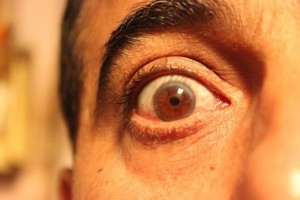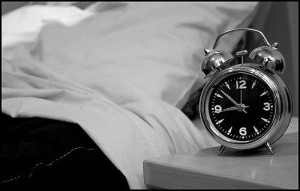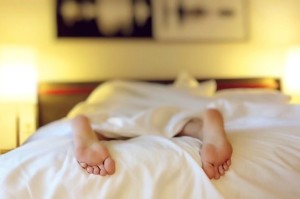
17 Oct Are you “worried” you can’t get to sleep?
The ABC did a “Sleep snapshot” a few weeks ago, and the most common problem causing people to have troubles getting off to sleep was… “thoughts”. This is not overly surprising, as daytime  worries can often keep us awake at night. Cathy Johnson from the ABC spoke with representatives from the national sleep foundation, who gave some pertinent advice for those who have “thoughts” keeping them awake at night.
worries can often keep us awake at night. Cathy Johnson from the ABC spoke with representatives from the national sleep foundation, who gave some pertinent advice for those who have “thoughts” keeping them awake at night.
Firstly, if you have spent time attempting to get off to sleep and just can’t, get out of bed. Keep the bed for sleep only, so if you are tossing and turning and know you won’t get off to sleep anytime soon, get up do something relaxing (just remember to keep the lights down low to help make you sleepy).
Next they suggest to keep the “worry time” away from the bedroom. It’s only natural to want to “digest” and “mull over” the day, or “plan” for the next day, but don’t let this time overlap with bedtime. One suggestion is to allocate time for “worry” or for the day’s reflection and planning well away from bedtime.
 Finally, they make a good point in that these first two points can happen, we can lie in bed either with an active mind or just can’t get off to sleep for some reason. No big deal right? Well we may often underestimate how stressful this can be, and how this extra stress can make the situation worse. A vicious cycle can be started if the stress from the day causes you to stay awake, which causes more stress, which in turn keeps you awake, this makes you tired and worsens the stress for the next day… which then keeps you awake. They discuss the idea that by not falling straight off to sleep, that we are “failing” or “underachieving”. This is not the case at all, and will only add to the “worry” and “stress” which is not helpful. We in fact may be “over-catactrophising” the situation… they suggest being a bit more relaxed about it using phrases like: “I might be a bit tired tomorrow, but I can cope”.
Finally, they make a good point in that these first two points can happen, we can lie in bed either with an active mind or just can’t get off to sleep for some reason. No big deal right? Well we may often underestimate how stressful this can be, and how this extra stress can make the situation worse. A vicious cycle can be started if the stress from the day causes you to stay awake, which causes more stress, which in turn keeps you awake, this makes you tired and worsens the stress for the next day… which then keeps you awake. They discuss the idea that by not falling straight off to sleep, that we are “failing” or “underachieving”. This is not the case at all, and will only add to the “worry” and “stress” which is not helpful. We in fact may be “over-catactrophising” the situation… they suggest being a bit more relaxed about it using phrases like: “I might be a bit tired tomorrow, but I can cope”.
Keep in mind that it is difficult for us to actually be able to assess how much sleep we actually get. Sleep, by its very nature contributes to our own poor assessment of duration or quality. We really do have a poor understanding of how “well we slept” because we are not awake to remember it. The only reliable measure of sleep quality, and sleep architecture is a polysomnogram or sleep study. Sleep studies are used to not only assess a persons sleep quantity and quality, but also to screen for primary sleep disorders. Sleep disorders will affect your quality and quantity of sleep. If you are concerned about your sleep, speak to your doctor.
http://www.abc.net.au/news/health/when-worries-stop-sleep-and-then-you-worry-about-not-sleeping/7928508

